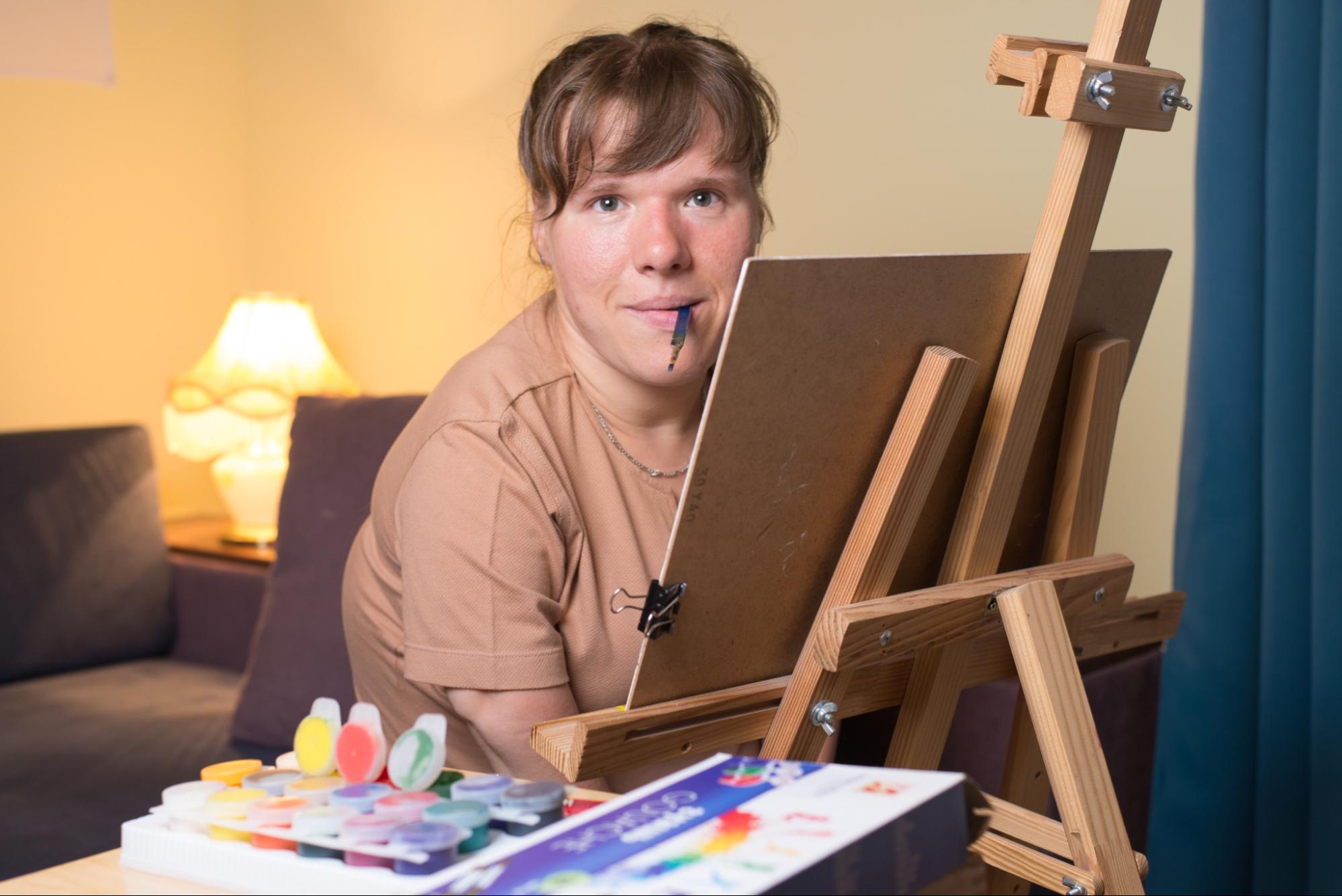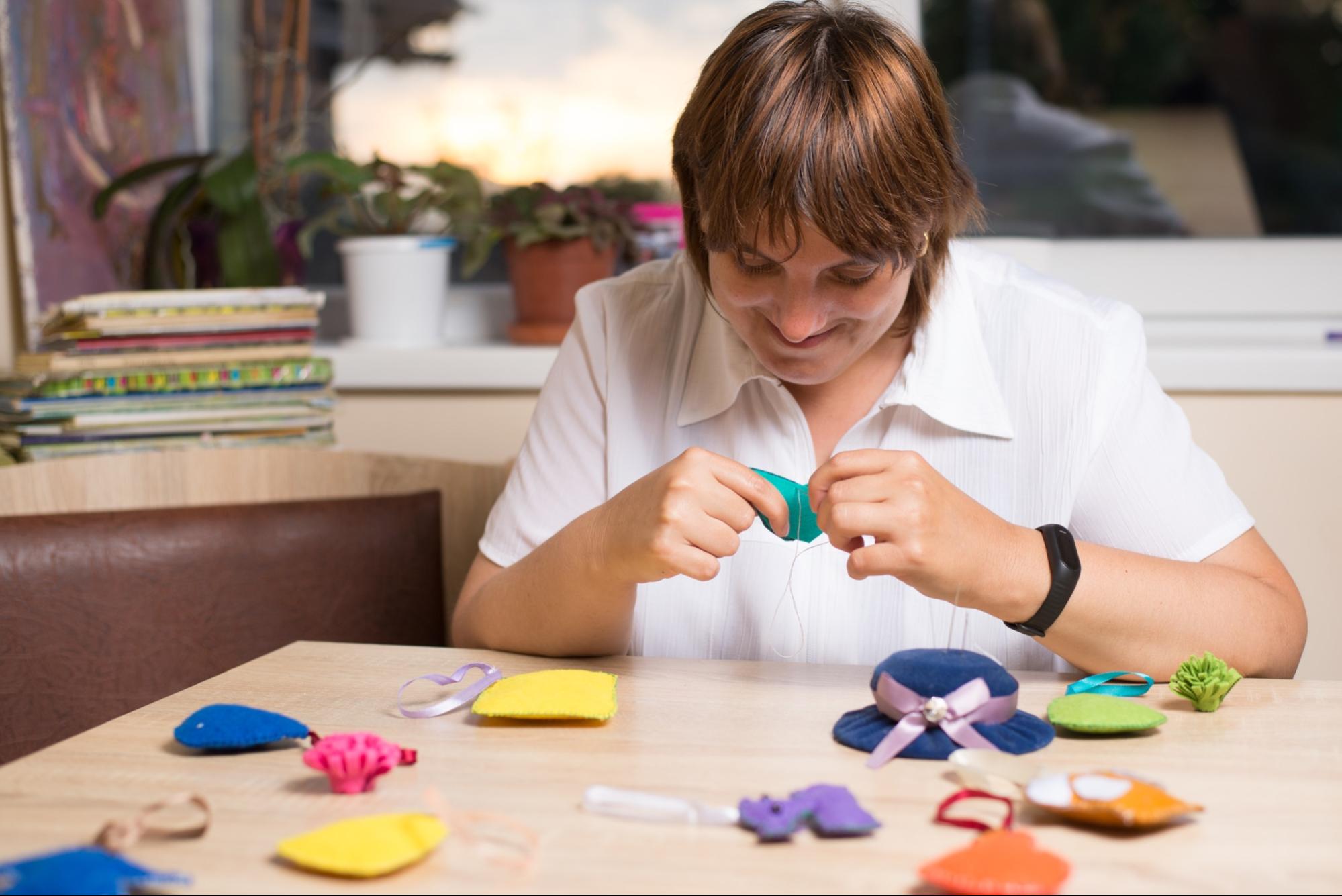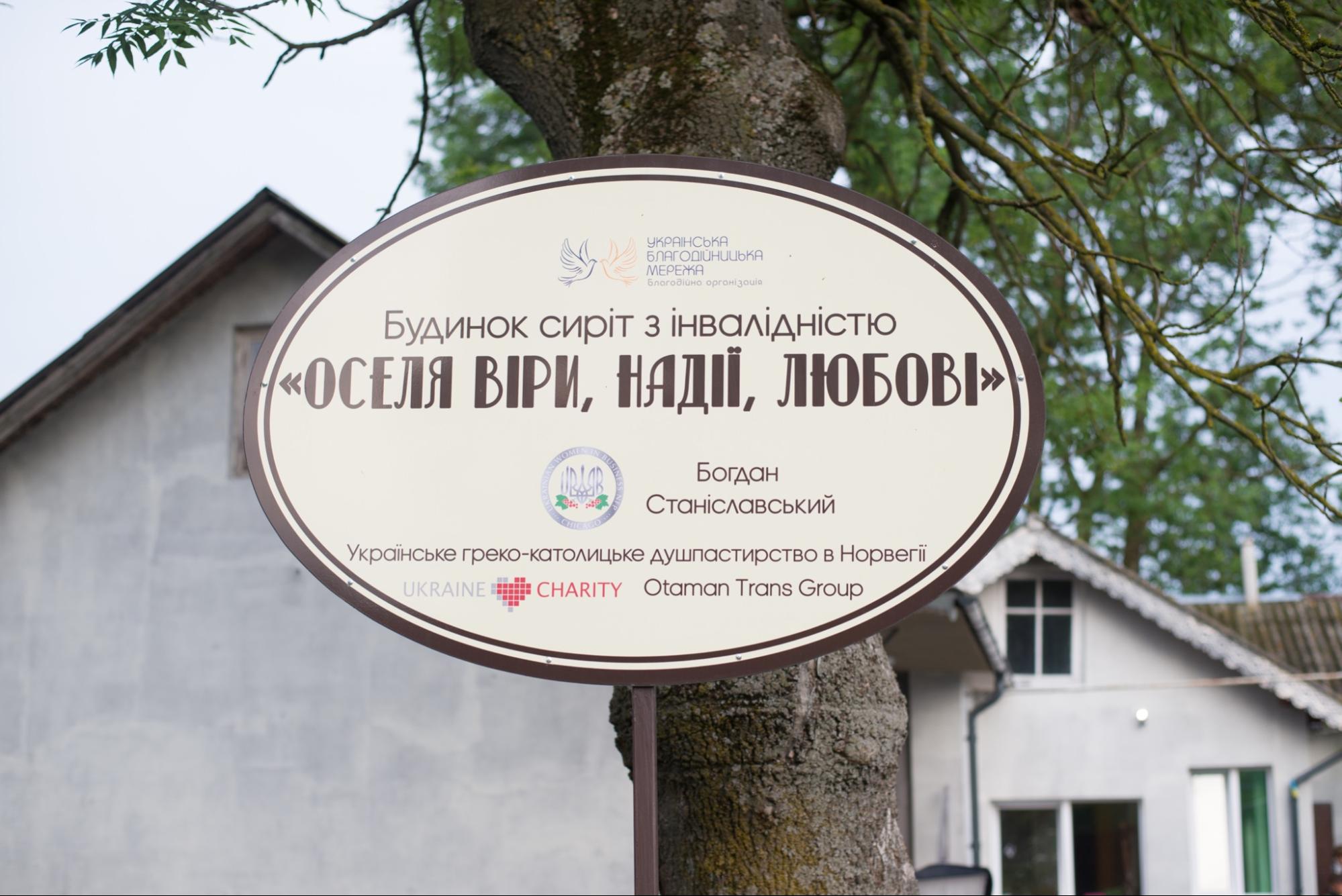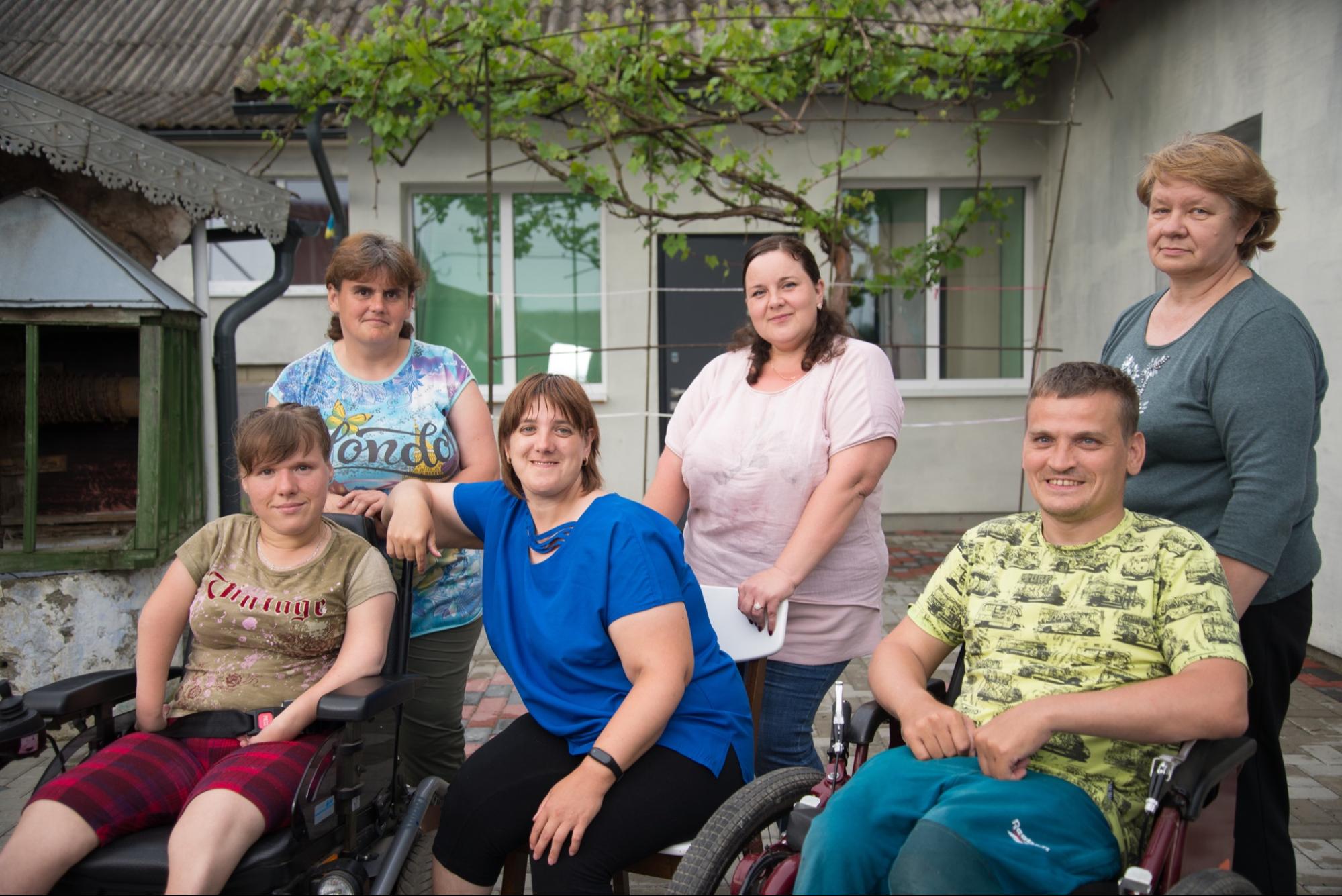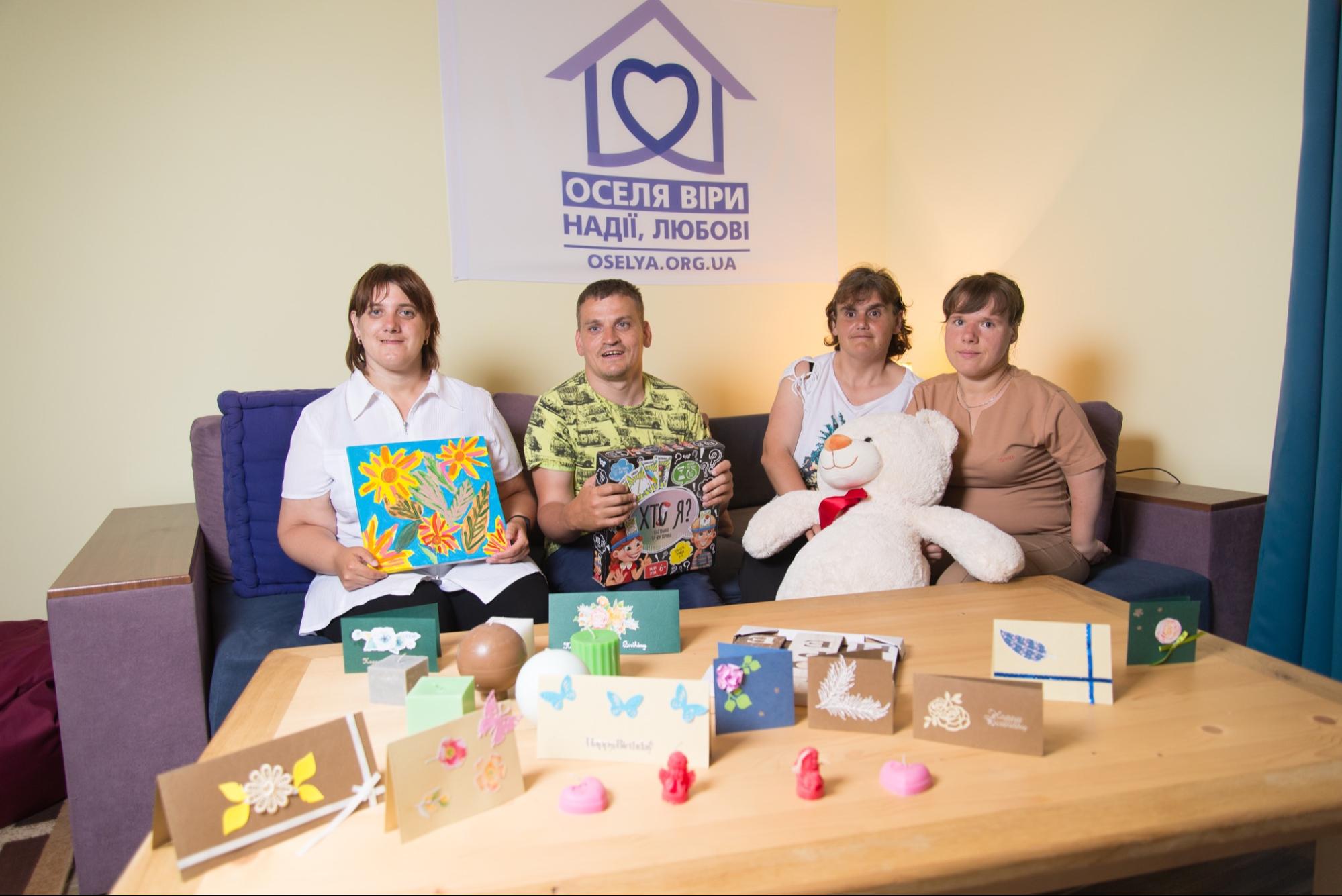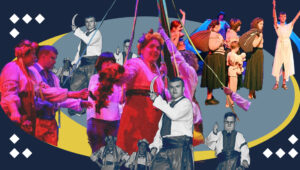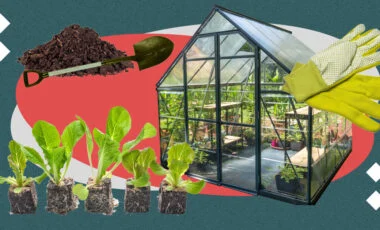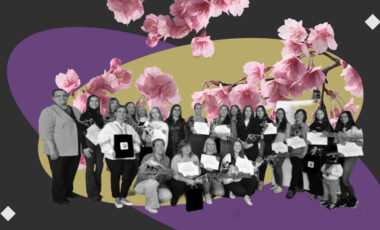"House of Faith, Hope, and Love" instead of an orphanage: how Ivano-Frankivsk volunteers solve the problems of orphanhood
The system of Ukrainian orphanages is outdated, the road doesn't improve but only complicates the situation of orphans. That's why, in 2019, the "Ukrainian Charitable Network" charity organization opened the "House of Faith, Hope, and Love" in the village of Obertyn in the Ivano-Frankivsk region. It's a supported living community for adult orphans with disabilities, the first one in Ukraine with social procurement funding.
We explain the unique experience of Carpathian volunteers, and how it can be applied in other regions of Ukraine
Spacious Obertyn is located just over 40 km southeast of Ivano-Frankivsk. The road through the district center Tlumach will take 10 kilometers more. In the village you need to pass the town square with the "fortress"–the "Castle of Gold" recreation complex–turn near the "Oberhlib" bakery and move straight down Ivan Franko Street almost to the Chorniava river. Then turn left onto Taras Shevchenko Street. We'll see a squat gray house behind a brown fence, with cobblestones and marigolds in the flowerbed. A neat sign on the corner suggests that it's where the "House of Faith, Hope and Love" is.
This house is home to four adult orphans with disabilities and one of the assistants. Uliana Belei, Ihor Chovpylo, and Yana Khazaniuk used to live in the Zaluchchia orphanage. Liubov Orobets moved from the Pohonia psychoneurological boarding school. Here, in the House, they master basic skills: clean up after themselves, wash dishes, cut vegetables for salad. Manage their own time and be responsible. They were not taught this in the orphanages, although they were all over twenty. And they're also engaged in favorite occupations and work.
Artist Uliana paints pictures with her mouth. Her floral paintings appear in exhibitions and private collections. Recently, the girl has started learning English and is now looking for a partner to practice with. Ihor makes decorative candles for sale. Yana embroiders cross-stitch paintings, sews cozy Christmas toys from felt. Liuba has the most household responsibilities in the house. She paints and embroiders, and during the season, she worked at "Faini Yabky," Obertyn social enterprise, a business card of the community.
However, not everyone can live independently, even of a supported type, after the orphanage. At first, another student of the Zaluchchia boarding school, Vasyl Rybaruk, lived here. But he couldn't adapt and has returned. Yana Khazaniuk moved to Oselia in his place.
How supported living is more promising than orphanages
"House of Faith, Hope, and Love" is an example of a supported living community. There are no orphanages in Europe and the United States, but there are small group homes for children and adult support communities. Children under the age of 18 live in small groups under the care of educators. The houses are as comfortable as possible, with a family atmosphere. After coming of age, six or eight orphans with disabilities settle in the community. Conditions are also homely. People organize their lives and decide for themselves what to do and how to plan their lives. Because hired assistants support daily life and residence, this type of institution is called "supported." But help exists only to the extent that a person can cope on their own. All houses are located in towns so that residents become part of the local community.
At the end of 2019, there were 282 orphanages in Ukraine. They were inhabited by 45,507 adults and children with disabilities, as the population of the entire Shepetivka or Myrhorod. Why are orphanages a bad idea in general? These institutions are massive, bureaucratized, and exist with numerous violations. The orphanage system is extremely expensive. However, huge public money mostly flies past the students themselves. People in orphanages often suffer from unsatisfactory living conditions, violence, and social isolation.
"Orphanage schools aren't able to provide basic human needs for security, protection, acceptance, freedom of expression," says Petro Mykhailyshyn, a psychiatrist at the Ostroh Regional Psychiatric Hospital. "School graduates are diagnosed with a whole bunch of psychological problems that destroy adult life. Children isolated in special institutions with varying degrees of disabilities have almost no chance of development and education per their abilities, and full life."
Deinstitutionalization reform has been underway in Ukraine since 2017. It's estimated that in ten years the number of children in orphanages will decrease by 90%. As the experience of neighboring Moldova has shown, it's quite possible in less than a decade. But the transformation of the system has to be long-spun, gradual, and in the interests of children as much as possible. However, in early 2021, civil society suspected that the reform was blocked.
"There's no actual reform of deinstitutionalization in Ukraine. There are consolidations of social orphanage schools, closure of educational ones (without properly creating conditions for children to receive the services they need at the community level), as well as separate initiatives that are the achievement of public, charitable organizations, not government or local authorities," says Vasyl Futerko, Ivano-Frankivsk lawyer and volunteer, founder of the Ukrainian Charity Network and the Association of Supported Living Communities. He's certain that the system isn't invented for the people, but officials aren't ready to promote deinstitutionalization on the ground. According to the volunteer, non-governmental organizations will be the "locomotive" of the reform only when the "money follows the person" mechanism is fully operational.
"Home of Faith, Hope and Love": how it was
A cold autumn evening of 2009. A bristly wind blows. An easily dressed kid washes the gate near one of the Carpathian orphanages. He reacts to the words of strangers with fear. Starving.
This image prompted several students to ask how children live in orphanages. It turned out that behind closed doors, things are far from what many philanthropists think. With this discovery began the history of the Ukrainian Charity Network, which has been working for decades with the most complex institutions in the Carpathians and abroad. At first, there were "classic" trips with gifts that didn't bring long-term benefits to children. And often they didn't have any at all, because the brought things disappeared, if not in the hands of the staff, then in the interior of the warehouse or pantry.
So they quickly set to work: studying, personal development, improving living conditions and spaces, treatment, psychological counseling, family placement. Ukrainian orphanages are so closed-door in all senses. They had to break through bureaucratic thickets and the management's reluctance to make contact. Over the years, UCN has collected almost 7 million hryvnias in aid. In the end, they realized everything was ineffective. In order not to fight the Soviet windmills, they took a leading initiative in 2017, to create a supported living community.
According to Vasyl Futerko, they started with letters. Official inquiries were sent to local communities in the Ivano-Frankivsk region to find a place for the House. And here was the first failure: they didn't receive answers from almost thirty territorial communities. In some communities, they directly admitted that they were afraid that they'd be forced to finance the House from the local budget. Of the two communities that agreed in advance, they chose the city of Burshtyn, where the largest thermal power plant in western Ukraine operates. We decided to build from scratch. However, at the stage of voting for the land, they refused without explanation.
Then Bohdan Stanislavskyi, an Obertyn entrepreneur and former deputy of the Ivano-Frankivsk regional council, invited volunteers to Obertyn. The town was well-suited, Vasyl Futerko thought: small enough to be in close contact with the future community, but also large enough to be able and have developed infrastructure. Local real estate prices are only a plus: in Obertyn, buying a house of 125 sq. m. costs six thousand dollars. In total, the reconstruction cost about 60 thousand dollars. It's the amount of charitable finances raised by the organization. Many services and necessary materials were donated and performed on a volunteer basis. In time, the entire process took less than three years. Obertyn authorities and residents helped in every way with the arrangement. For them, the appearance of the House is both a good deed and something unique that isn't available in other regions, and an opportunity to increase the social and tourist potential of the community.
For the first time in Ukraine
About 40 thousand hryvnias are spent on House's maintenance every month. It's the cost of food, utilities, salaries of assistants, other needs for housing, treatment, education, and development. For example, House's residents receive education at home according to an individual program. Before starting work, the assistants took advanced training courses for social workers at Uman University. They work officially. Part of the costs is paid from charitable funds and earned by residents. According to the law, the House can count on benefits and subsidies to pay for utilities. However, they had to defend this right in court.
The most urgent expenses are covered by funds from the regional budget. In this sense, the community in Obertyn is ahead of all of Ukraine. After all, the state standard of social procurement was introduced here for the first time. Although this practice has long existed everywhere in European countries.
On paper, everything is simple. The Regional Department of Social Policy orders a supported accommodation service through a tender. The winning organization receives monthly budget funds from the community accounts. The supported living format is much more effective in implementing public funds than orphanages. After all, it's a specific purpose for the needs of specific people: the "money follows a person" principle in action. At the suggestion of the Ukrainian Charity Network, the mechanism of the social procurement of supported housing was included in the regional plan of deinstitutionalization in the Ivano-Frankivsk region.
Vasyl Futerko talks about the social procurement algorithm. First, the regional budget and budget of the Department of Social Policy are approved. Then a decision is made on the social procurement. Then public purchase is conducted. There are two options: if the service cost doesn't exceed the threshold value of UAH 200,000, a one-time and simpler procedure is enough. If the amount is large, the tender is legally conducted in three stages. The first two stages are open bidding, which should be canceled if less than two organizations are involved. Accordingly, only in the third stage, the Ukrainian charity network wins the auction. Then they sign the agreement.
However, in 2020, the regional treasury tripped them up. From January to April, no money was paid into community accounts. 118 thousand hryvnias were collected. The officials didn't clearly explain the reason: they say that the reports of completion weren't accounted for. To unblock the funding, the Ukrainian charity network won a lawsuit. But trained by such experience, the volunteers are looking for 500 guardians who would agree to transfer at least 70 hryvnias to the House's accounts every month. It is estimated that this will be enough for uninterrupted funding, even when government payments are delayed. From January 2021, the community is supported entirely by charitable funds.
What's next, and who's taking up the torch?
People who haven't been declared incompetent by a court may choose their place to live. In particular, in supported housing, says the head of the Ukrainian charity network Vasyl Futerko. Therefore, the potential for this format in Ukraine will only grow.
In the state standard, among the entities that can provide a supported accommodation service, there are enterprises, institutions, organizations, and even sole proprietors. The network of supported living communities of various forms of ownership in Ukraine is gradually expanding. Currently, there are several houses in Lviv. There's "Emaus-Oselia" at the Ukrainian Catholic University. This home for people with mental disorders is located on campus. Since 2011, there's a supported temporary residence house "Vitania" of the "Lyiarsh-Kovcheh" community (it's the Lviv branch of the International Federation "Liarsh"). The project of another supported living house of the Dzherelo Center won the city's public budget in 2021. A small group house is being built at the expense of the state in the village of Birky in the Lviv region. At the end of 2020, supported housing for people with mental disabilities was established in Vinnytsia.
Advocacy of the legislative initiative is named an important task for the future of the Ukrainian charity network. They want to consolidate the mechanism of financing social services with the "money follows the person" principle. It's a medical reform-like practice of paying for social services to specific people at their place of residence. Only in the Ivano-Frankivsk region, one needs, according to estimates, from 5 thousand UAH for one person in an orphanage. Depending on the type of institution, there are much higher amounts. However, budget money is not "assigned" to people, as in Europe, and is scattered in the abyss of the system.
The organization is also considering the creation of a Ukrainian center for supported housing development. And in December 2020, the house in Obertyn began to expand for four more people.
You can support the development of the House and read more about the work of the Ukrainian Charity Network on the organization's website.
This article was prepared within the Inter-Editorial Exchange Program with the support of the National Endowment for Democracy (NED).
Author: Khrystyna Semeryn
Photos – Ukrainian charity network


